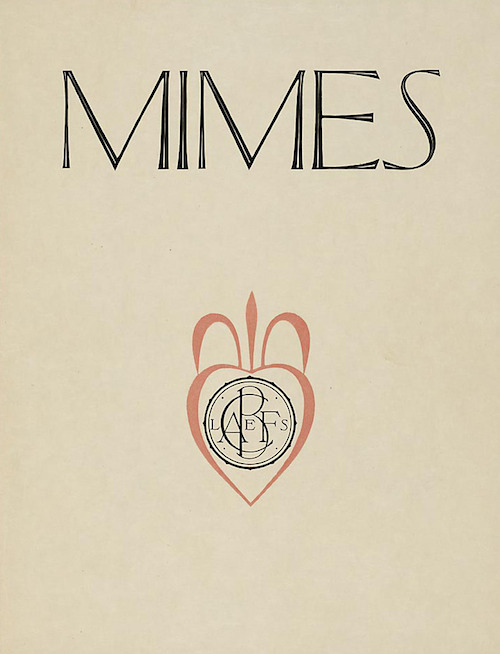
In November last year I left San Francisco for ten days to go to Providence and teach a poets theater workshop at Brown. A kind friend, hearing I would be in New England, if that’s how you say it, arranged for me to give a reading at an artist-run space nearby where he lives, Flying Object in Hadley Mass. And he even arranged for a grad student at Brown to borrow a car and fetch me at my door and to drive me all the way to western Massachusetts; the next morning, he’d drive me back in time to meet my poets theater obligations.
When the doorbell rang I looked out the window and I was like, what is it clouding the skies over Benefit Street? Those strange shapeless flakes of white meandering hither and thither on the cold wind. I guess I’ve been in San Francisco so long that snow seemed different to me, different than movie snow, it was so fragile and mindless, like it had no idea what it was doing. I sympathized with that POV—or was it sheer and total projection?—but all of a sudden I was seized with terror thinking, “We’re not gonna make it to Hadley!” The shock in my face was still apparent to Kit Schluter, the young poet assigned to drive me. But he thought it foolish. Look, he said, it’s not even sticking to the ground, we’ll be fine. Numbly I got into the car and bundled myself up in scarves and blankets, like Hercule Poirot. Kit was very kind. To make my mind off the inclement and terrifying weather I managed to make some social chatter, asking him what brought him to Brown, what subjects he was interested in, why on earth he had not signed up for my poets theater workshop (“too busy”), what he had against poets theater (“absolutely nothing, honest”), and what his family was like and where he was from, and so on.
The miles sped by and he, like Hermes of ancient mythology, began to tell me about a book he had published, his translation of the French aesthete of Symbolist times, Marcel Schwob (1867-1905). Like any other man of blizzards I nodded and pretended I knew something about Schwob, but it soon became clear I know nothing, whereas he, Kit, at 24 years of age, knew all about him and was a total fan of his work. The Book of Monelle from 1894 is now available from Wakefield Press in Schluter’s 2012 translation and, as he spoke, I began nodding again, falling into a trance of snow, believing that Marcel Schwob was the great unknown in world literature, a voice tragically silenced by early death and shameful contemporary ignorance.
The next day, after a night of fitful slumber, I met my young Hermes at a cafe in downtown Northampton. “All set?” said he, pounding back a strong coffee. “Pretty much,” I agreed. “On the way back, can you tell me more about Marcel Schwob?” He nodded and we took off. A symbolist week followed in which he infiltrated my workshop and never let me forget about Schwob. The Greeks envied Hermes beyond all the gods not only because he had the power of speed —pictured often with wings on his distinctive workingman’s cap—but because he had divine access, the only being ever given the freedom to visit heaven, earth, and hell. “I’m gonna try translating Schwob,” I said at the end of our week. “Oh good, I’ll help!” “I’ll start with his poems—with one poem.” His face darkened. “He wrote no poems, he was a prose writer.” “Oh dear, prose, that’s a lot of words—" particularly for someone who knows as little French as I do. “I’ll pick out some very short, prose poem-like, pieces.”
"Short?” He paused. “How short is short enough?” “Like—miniscule. And will you help me with the French words?” His fist tightened at his throat. Then it relaxed. “Sure,” he said. Well that was in November as I say and somehow I’ve wound up translating a whole tas du Schwob! Here’s a little bit from the beginning of the very first (“Le Cuisinier”) of Marcel Schwob’s Mimes from 1893.

I’ve got a silver eel in one hand, see, and in the other, my long-bladed kitchen knife, if you want to talk, follow me while I race back to our kitchen from the long wharf area where the sailors call to port.
The former was lounging at la Feria, the bar of Madame Lysiane, whose shining hair is perfumed with sperm-oil. For ten drachmas I rented him for an hour, and his brother Robert, till of them there was nothing left but tiny dabs, and a few thin slits and scars you wouldn’t even offer to the soldiers at the barricades.
This is Brest, baby, so move it, chop chop. Come back with me, for you’ve always wanted to see a sailor opened; look at him wriggling, as if under the lanyards of my master’s whip; then we’ll marinade him in aspic. I’ve promised a few kids they can lick the spoon once it slides out of his ass.
Get me the charcoal! Blow on it, make the gray red, its sparks won’t give you no HIV. Extreme heat kills the AIDS. Look at your crotch, it’s empty as the pretty face of Querelle: shall I not beat both into the dirt?
And it goes on like this, totally prefiguring Jean Genet’s novel Querelle a Brest, not to mention the Fassbinder movie with Brad Davis and Jeanne Moreau and Franco Nero. How did Schwob manage it? He was, like Hermes, the master of time as well as space, he said no to nothing but the walls and the clocks. I get him; I just need a little help with the French bits, c’est tout.
Poet, novelist, playwright, art critic, and scholar Kevin Killian earned a BA at Fordham University ...
Read Full Biography

